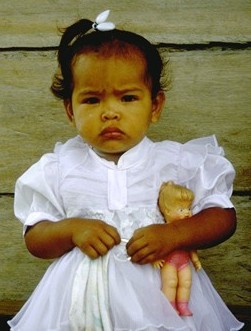Human Rights

www.cs.fiu.edu/~lespin03/nica-pics.html

Miskitu girl from www.cs.fiu.edu/~lespin03/nica-pics.html
Human rights have traditionally been based on individual rights making each individual equal to another.On the other side, group rights treat individuals as carriers of the group identity rather than be autonomous (Kymlicka 22).Yet, another point of view is that "group rights supplement and strengthen human rights, by responding to potential injustices that traditional rights doctrine cannot address" (Kymlicka 22).
The Indigenous peoples have struggled for their human rights for a long time. They have not changed their demands, but are being heard by more people; thus exposing their demands to a larger society (Kymlicka 22).
Thus their is a strong connection of granting true autonomy to those indigenous peoples who ask for it and them being granted human rights, which the world society has neglected them for such a long time.
In particular, political, economic, and cultural autonomy has been a long desired goal for Miskitu, Sumu, rama and Garifuna Indians, and Afro-Carribean Creoles that these people decided to make an alliance with the Contras against the Sandinistas to gain their human rights ("Recovering" 926).